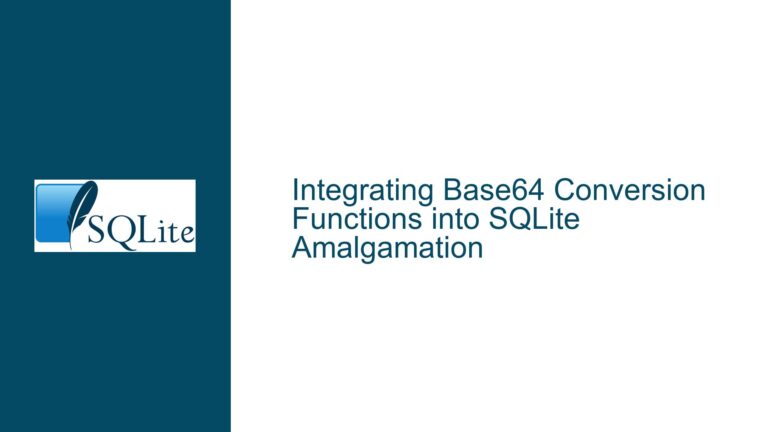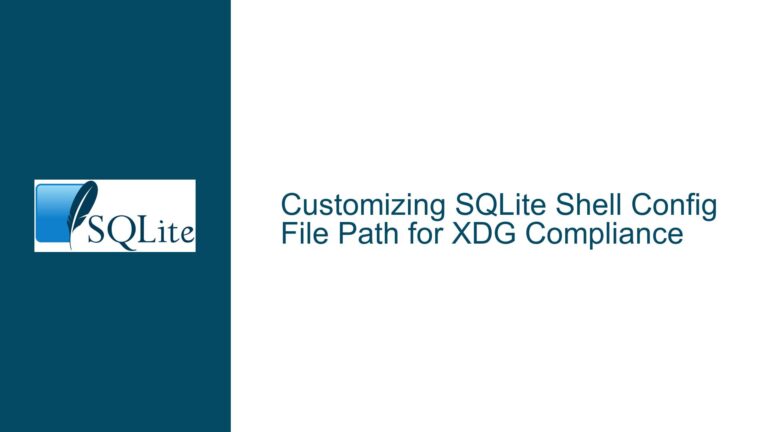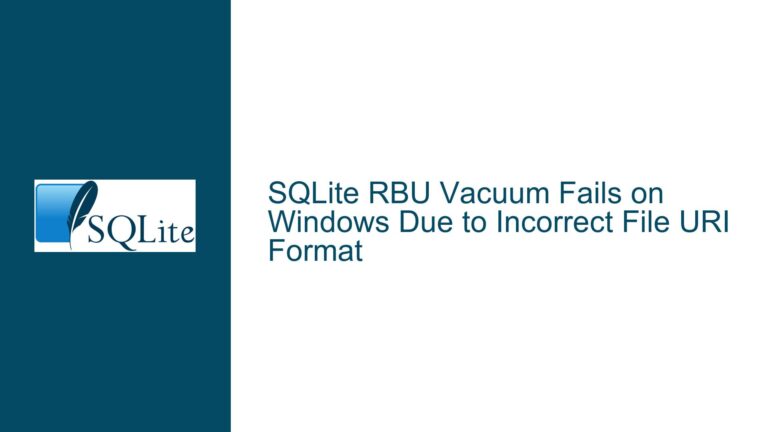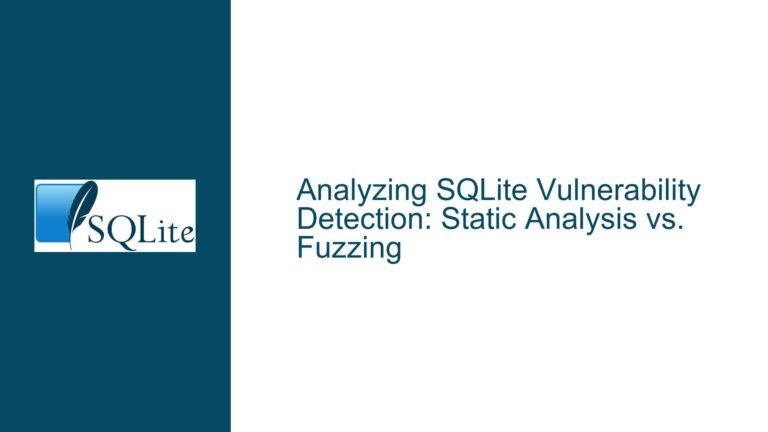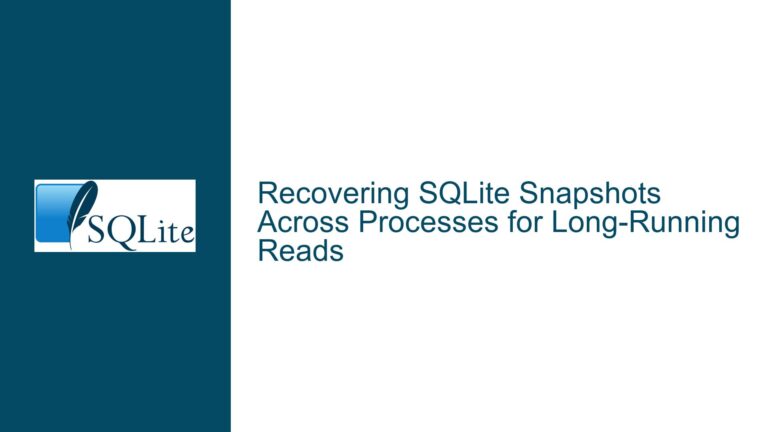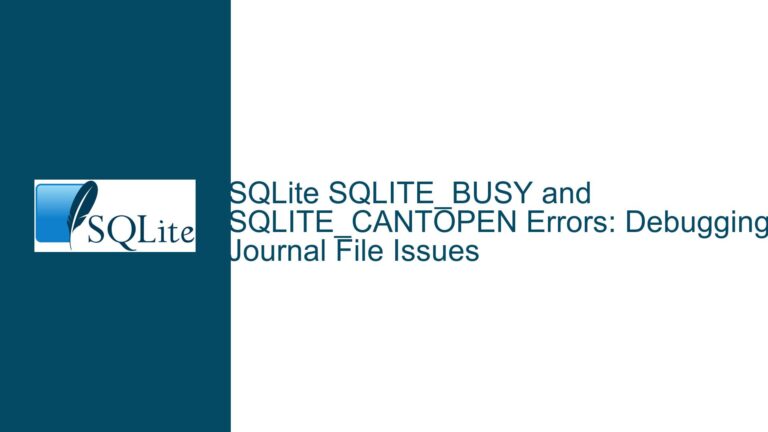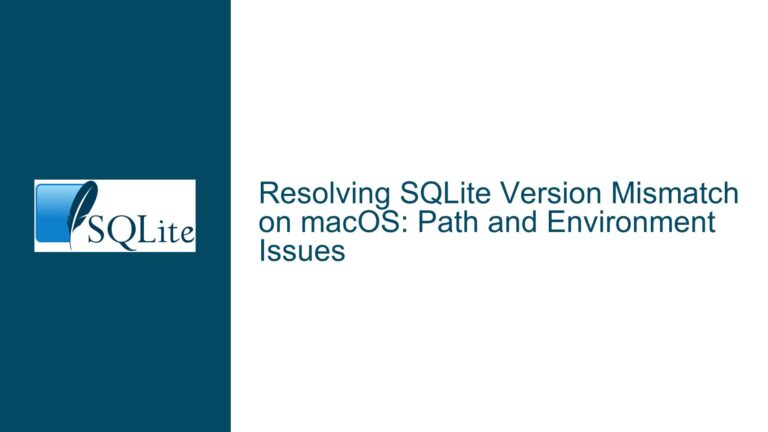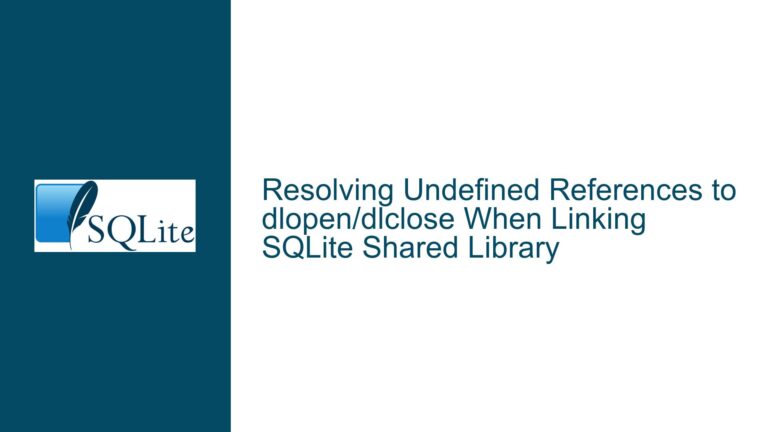Integrating Base64 Conversion Functions into SQLite Amalgamation
Understanding the Need for Base64 Conversion in SQLite Base64 encoding and decoding are essential operations in many applications, particularly when dealing with binary data that needs to be stored or transmitted as text. SQLite, being a lightweight, serverless database engine, does not natively include Base64 conversion functions. However, there are scenarios where developers might need…
